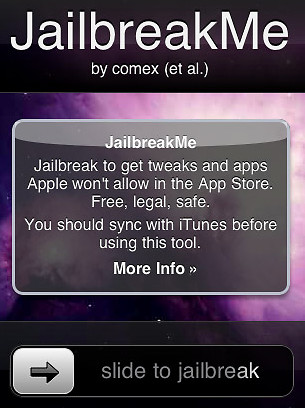 Apple has quietly and without warning dropped support for a jailbreak detection application programming interface (API) that was included as part of iOS 4.0 when it was released over the summer. According to a report by Network World, the jailbreak detection was discontinued with the release of the iOS 4.2 upgrade – not even six months after it was first released.
Apple has quietly and without warning dropped support for a jailbreak detection application programming interface (API) that was included as part of iOS 4.0 when it was released over the summer. According to a report by Network World, the jailbreak detection was discontinued with the release of the iOS 4.2 upgrade – not even six months after it was first released.
Apple had originally included the API as part of a mobile device management (MDM) bundle to allow third-party developers to be able to tell if an iPhone had undergone a jailbreak. Jailbroken phones can pose a security risk for individuals as well as larger corporations who have particular interest in keeping data secure.
Jailbreaking methods work by making changes to core operating system files. The detection API would scan the system files and respond with a positive or negative response indicating whether or not a device had undergone jailbreaking.
In August, hackers released a browser-based jailbreak that offered a simple approach to jailbreaking that also uncovered a gaping security flaw that could potentially allow malicious programs to access an iPhone. Apple worked quickly to patch the flaw with an iOS upgrade. Hackers have already released jailbreaking methods for iOS 4.2 continuing the game of cat and mouse between Apple and jailbreak developers.
Apple hasn’t offered an explanation as to why it decided to pull support for the feature, but MDM vendors claim that they have their own methods to detect jailbroken iPhones and iPod Touches that don’t require Apple’s native support.
Jailbreak detection spread worries that Apple was considering a plan to detect and disable jailbroken iPhones. That fear was laid to rest when the U.S. Copyright Office determined that while jailbreaking might void warranties, it’s not illegal. In July, the Copyright office approved several changes to the Digital Millennium Copyright Act that effectively legitimized jailbreaking.


